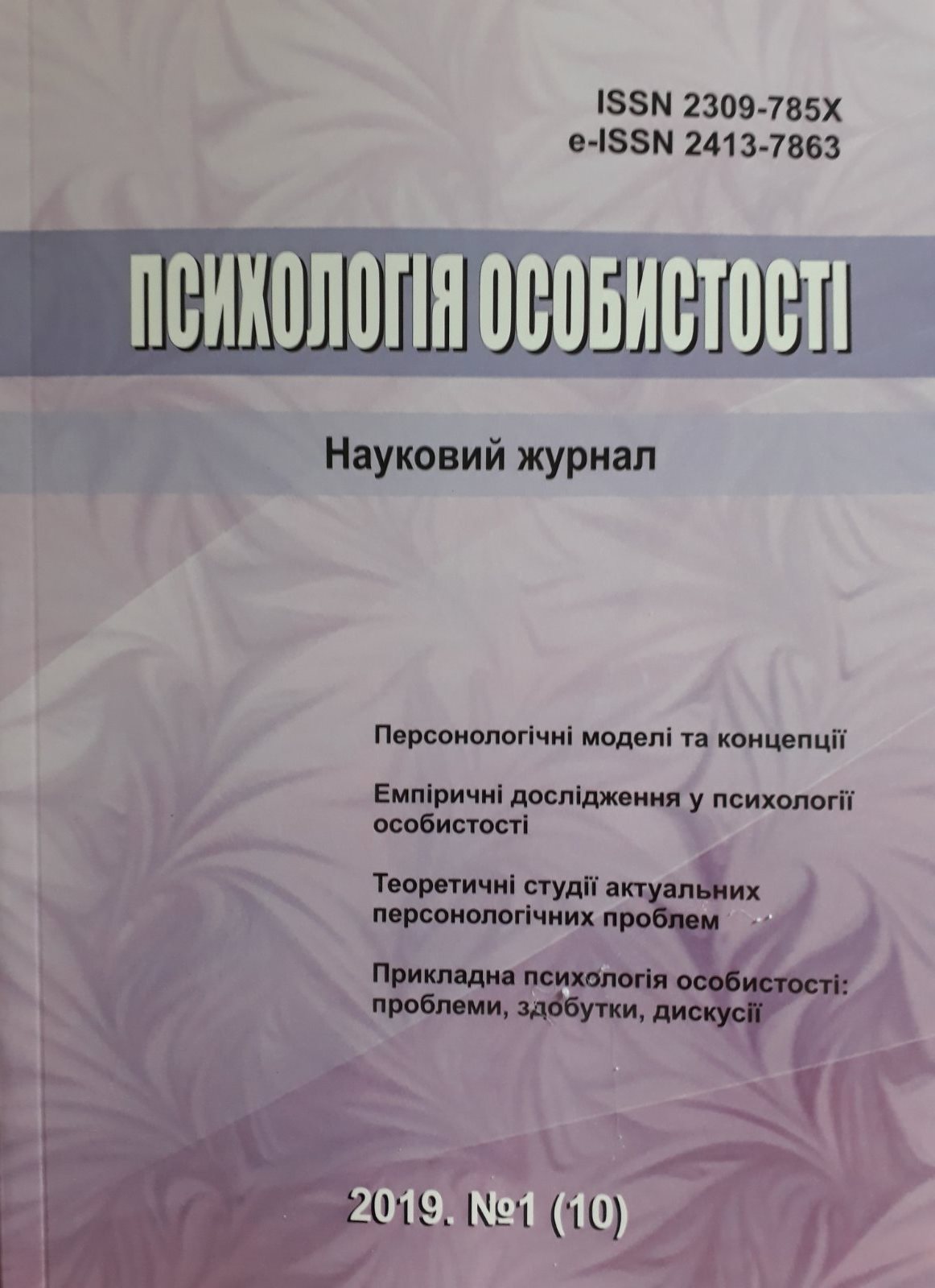DEVELOPMENT OF INTEGRATIVE STRATEGIES IN PSYCHOLOGY: THE APPEAL TO THE CREATIVE HERITAGE OF GEORGY BALL
DOI:
https://doi.org/10.15330/ps.10.1.29-36Keywords:
integrative strategies, ratio-humanistic methodological orientation, personality, spiritual-existen¬tial dimension, existential-integrative approach, analytical procedures.Abstract
The modern cognitive situation and methodological problems of psychology are outlined. In view of the above, it is shown that formulated and developed by Georgy Ball ratiohumanistic orientation of the methodology of human studies has considerable heuristic potential in the development of integrative strategies in psychology. Finding ways to ensure the integration of psychological knowledge, working out variants of relevant technologies scientist considered an urgent scientific task. He analyzed the difficulties of integration, in particular due to the multivariate knowledge of the subject of psychological research; the role of the subjective preferences of the researcher; the presence of subjective qualities in those who are being investigated; the need to reconcile the results of the application of methods of varying degrees of objectivity. In the context of the creative scientific achievements of Georgy Ball, in particular, the ideas that he expressed, but did not get enough development in his works, we proposed an integrative-existential approach, aimed at developing integrative cognition strategies, first of all, cognition of personality. This approach is based on general scientific principles of integrity, activity, development, interaction. Fundamental for our approach is the ratiohumanistic principle in its worldview and methodological dimensions. Are also outlined principles that are important to the approach (principles of «scientific ignorance», triple modeling of the investigated reality, incompleteness of theory, its instrumental purpose, complementarity of theories, flexibility of methodological vision, comprehension of the subjectivity of the author of the theory, consideration of the state of mental reality and its antinomy, reflexive criticism of researchers «lenses», sensitivity to the needs of the research practice. A number of analytical procedures are proposed that complement and reinforce each other. The diversity of procedures creates the basis for 1) comparing different conceptual approaches to a particular problem under study, 2) creating amplified models. This methods aimed at a specific problem, appropriately expanded and technologically specified, can be effective integrative instrument of personality cognition.

